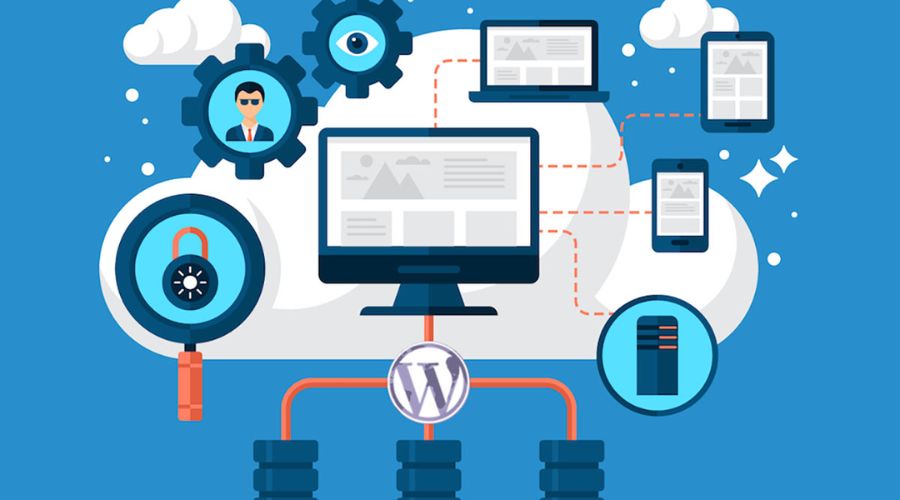Web hosting saves your website on a server, making it accessible to internet users all over the world. However, with so many hosting alternatives available, it might be difficult to choose the best one for your project.
In this article, we’ll analyze them based on pricing, performance, scalability, and customer service to help you make an informed decision before hosting and launching your website.
Let’s know the Best Web Hosting :
1. Shared Hosting

Shared hosting enables numerous websites to share the same server resources, such as storage space, RAM, and CPU. Such a design maximizes server resources while lowering prices, making shared hosting a popular solution for small website owners and businesses just getting started online.
Advantages
One of the primary advantages of shared hosting is that it is less expensive because the expense of running an entire server is divided among numerous users.
As a result, shared hosting is often less expensive than other types of web hosting. This web hosting cost guide includes a thorough pricing comparison.
Shared web hosting is also regarded as user-friendly. Most shared hosting companies feature user-friendly control panels that make website management simple. The straightforward installation process enables website owners to concentrate on content rather than technical website duties.
2. Virtual Private Server Hosting

Virtual private server (VPS) hosting bridges the gap between shared and dedicated hosting solutions.
On a single physical server, it creates virtual areas for each user. Although a single physical server is shared, each virtual server is assigned its own set of resources, ensuring that the hosted websites do not compete for these resources.
As a result, website owners may enjoy a more secure and managed hosting environment. Using a virtual private server (VPS) is similar to owning a server, but at a far lower cost.
If you want to learn more about VPS hosting and how it works, take a look at our full tutorial.
Advantages
The key benefit of VPS hosting is increased flexibility and resource availability.
Site owners have more control over their space with virtual private server services, which let them install and operate their own software and operating systems. They also receive a larger allocation of resources, which are easily expandable to accommodate the site’s expansion.
3. Dedicated Server Hosting

Dedicated hosting allows a single customer to have exclusive access to an entire physical server. This hosting approach offers the highest level of control, performance, and security because website owners are not compelled to share any server resources with other clients.
With dedicated resources, website owners can customize every aspect of the server, including the operating system, hardware specifications, and software installation. This flexibility ensures that each client’s individual needs are satisfied.
Advantages
Dedicated resources enable websites to manage large levels of traffic and complicated processing without the danger of performance deterioration that can occur on a shared server.
Dedicated hosting also provides greater security. Site owners can adopt web security measures that are suited to their individual requirements without being impacted by the vulnerabilities of other users on the same web server.
This level of control and flexibility makes dedicated servers an excellent alternative for enterprises that have specific software requirements or must adhere to specific regulatory norms.
4. Cloud Hosting

Cloud hosting is a departure from traditional hosting models. It takes advantage of cloud computing to deliver a highly scalable and adaptable solution.
This website hosting uses a network of interconnected virtual servers to handle the hosting load. It enables smooth resource allocation and redundancy, ensuring excellent dependability and performance levels even during peak traffic times.
Advantages
One of the most appealing aspects of cloud hosting is the pay-as-you-go price approach. This payment method means that enterprises only pay for the resources they use.
Cloud hosting services also allow for easy resource scaling with little to no downtime. Such adaptability ensures that websites can swiftly respond to traffic increases or drops.
Explore an in-depth guide to learn more about cloud hosting and how it may improve website performance and scalability.
5. Managed WordPress Hosting

Managed WordPress hosting provides optimal performance, security, and support for WordPress sites. The web hosting company will handle all technical aspects of website management, allowing WordPress users to focus only on content production and growth.
Advantages
Managed WordPress hosting provides specific server configurations, caching techniques, and other WordPress-optimized features to boost site speed.
Take a look at Hostinger’s Managed WordPress plans to see what features are available with this hosting service.
It often provides automated updates for WordPress core software, plugins, and themes, ensuring that your WordPress site is secure and up to date.
Most managed hosting services include the ability to schedule malware and vulnerability checks to improve security. Backups are also performed on a regular basis, ensuring that the website can be restored quickly following data loss or a security event.
Furthermore, support teams at managed WordPress hosting providers are typically well-versed in WordPress-related difficulties. If you run into any problems, you can contact these specialists for assistance.
Conclusion
There are numerous sorts of web hosting solutions available, and selecting the best one for your website is not always an easy task.
When assessing your alternatives, consider this guide as a simple rule of thumb:
- Shared web hosting. A low-cost solution for portfolio websites and rudimentary blogs that do not require extensive server resources or computational power.
- VPS hosting. A virtual dedicated server offers greater flexibility and resource allocation than shared hosting. Ideal for technical professionals seeking to host multilayered websites or web apps.
- Dedicated hosting. Provides a full server dedicated to a single website, maximizing control and resources for major organizations with large expenditures.
- Cloud hosting. Uses numerous servers to improve dependability and scalability for medium- to large-scale eCommerce stores.
FAQ
Q1. How do I select a web host?
A: Following these procedures will help you avoid mistakes that could cause significant problems for your firm:
- Determine the type of web host you require.
- Choose the appropriate web hosting package.
- Read reviews about web hosting businesses.
- Get the appropriate bandwidth from your web host.
Don’t select a web hosting provider just primarily on price.
Q2. What kind of web hosting is the best?
A: You have a whole physical server all to yourself when you use dedicated hosting for your website (s). Everything is yours, and you don’t have to give it to anyone else. The primary benefit of dedicated hosting is total control over the physical setup.
Q3. How should I pick a hosting plan?
A: Examine Comparative Features: Examine the features that each hosting company offers. Evaluate customer support, scalability choices, security measures, and available resources (CPU, RAM, storage). Think About the Price: Value should be given precedence above price, even though it is a factor.





